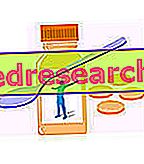
Flower Therapy and Flower Therapists: therapeutic attitudes
Here are some statements on the therapeutic attitude that according to the proponents of this therapy are an integral part of the therapy itself. It is clear that the scientific boundary is overcome to arrive at behavioral and philosophical situations.

The states described by Bach
As Bach progressed in the search and discovery of flowers, he also identified very specific character tendencies of the human personality. In the last draft of his book "Twelve healers and other remedies" brings together the 38 Bach flowers in seven groups, which correspond to different ways of approaching oneself, others and, more generally, reality: fear, uncertainty, lack of interest in the present, loneliness, hypersensitivity to influences and ideas, discouragement and despair, excessive concern for the welfare of others.
Fear
Fear is certainly a paralyzing feeling: be it the fear of something very concrete, like death and illness, or something more indefinable, or even to face the situations and the judgment of others. Fear often leads to decision-making blocks and one remains a spectator in life; often the consequence of a profound internalization of this state of mind produces phobias, obsessions, states of panic, inability to control one's own emotions and reactions, as well as various types of neurosis.
Uncertainty
Even uncertainty and doubt are paralyzing, and sclerotize thought and action. The inability to decide or to carry things forward creates distrust in oneself and in others, pessimism and prostration, and even if one manages to move forward, one does it by suffering or with a great sense of dissatisfaction. This state of mind often causes chronic diseases, depression, fatigue, nervous fragility and emotional instability.
Insufficient interest in the present
This mental status is instead the distancing, the detachment or even the rejection of reality; it is the inability to adapt to situations, to engage in work and activity; you are completely taken from your problems and memories, or you shield yourself with a possible future to be realized. According to Bach, this dissociation of reality also leads to a dissociation of the personality, to memory loss, to an absolute lack of concentration; it causes states of drowsiness and frequent depressions, headaches, abulia, loss of energy, insomnia and obsessive states.
Solitude
Loneliness is a detachment and a departure not from reality, but from others, it is a form of asociality. Pride and self-centeredness often lead to isolation or to feeling isolated, seeking inner disharmony and rigidity. It is no coincidence that this state produces various forms of osteoarthritis, muscle stiffness and tension; inability to relax, nervous stress, insomnia and disturbed sleep.
Hypersensitivity to influences and ideas
Hypersensitivity is not a "positive" state of mind, as can be thought at first sight, but rather an excess of sensitivity that can derive both from selfish feelings and from deviant altruisms, which lead to submission or loss of identity. Strong emotional disorders, anxious states, exhaustion are the consequence of these ways of relating to oneself and to others; they can cause alcohol addiction and psychotropic drugs, neurotic food relationships, such as bulimia and anorexia, and all sorts of nervous tics.
Discouragement or despair
These feelings are very frequent and common among human beings. The loss of hope and courage to face everyday situations and life leads gradually to self-depreciation and to the belief that there is nothing to believe in. Also in these cases one can take refuge in alcohol and drugs, various forms of masochism and nervous breakdowns are expressed: the tendency to develop gastric ulcers, frequent fainting, nervous collapses, as well as the predisposition to contract any type of disease represent the logical consequence of all that.
Excessive concern for the welfare of others
The excessive tension and mental concern, as well as the excessive enthusiasm with which ideas can be assumed or to conduct activities, often manifests itself in an excessively extrovert manner; this makes others impose their own personality and convictions. The rigidity that one has towards those around us or towards oneself, therefore, leads to the wrong or vital use of vital and mental energy; in some cases it also leads to forms of oppression. According to Bach, the most common pathologies caused by this state of mind are: cardiac, vasocirculatory, lymphatic disorders; excessive thinness, irritation and allergies, gastrointestinal disorders, tension insomnia.



